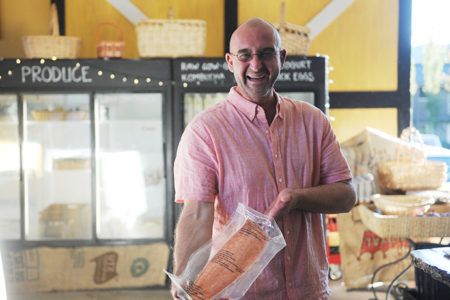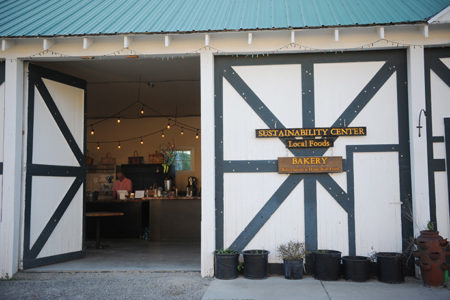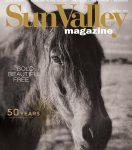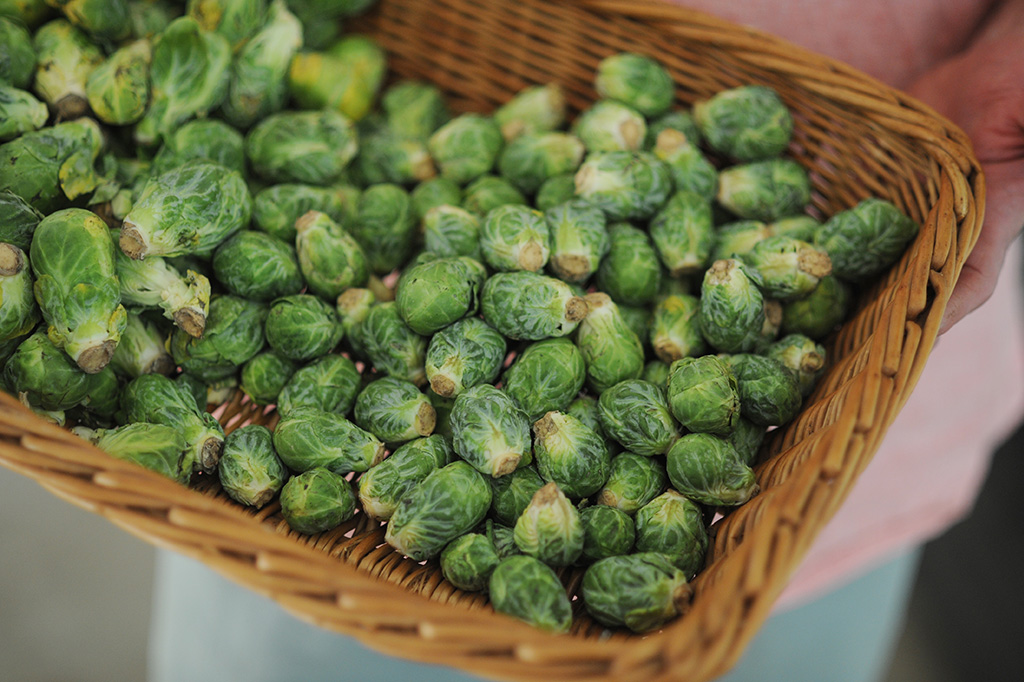How do we get the healthiest, most affordable and sustainable food into our bodies?
That’s the question the Wood River Sustainability Center (WRSC) exists to answer—every day, year after year. It is also the credo of the center’s owner, 46-year-old Al McCord, whose entire professional life has been in some aspect of providing food for people, most of it in the restaurant business.
Beginning as a boy in the South, McCord worked in, owned and managed restaurants for some 20 years, from Indiana to the tip of Florida. Then two different but connected epiphanies changed McCord’s world. The first was when he was diagnosed with cancer at age 21. The second came as a result of the first: he wanted a better quality of life than he was living. His search for that tangible essence led him away from the South to the Wood River Valley 14 years ago.
“I am a cancer survivor,” McCord explained. “And food is medicine.”
That is, a key component of quality of life is the food we put into our bodies and the quality of its life in getting there. Four years ago, after having survived cancer, McCord bought The Wood River Sustainability Center from its founders, Dick and Melinda Springs, who started it in 2009.
Picabo farmers, the Springses were looking for more cold-storage space for their agriculture operation when they checked out an old barn available in downtown Hailey at 308 South River Street. The building had originally been a Forest Service auto shop in the 1920s. They immediately recognized the building and its location’s potential to store as well as sell food, and they called it a “sustainability center” instead of a market or store. This moniker served as a reminder that food is medicine as well as product.
Whether or not the Springses are familiar with environmentalist and author Paul Hawken’s writings, he expressed it so very well: “The first rule of sustainability is to align with natural forces, or at least not try to defy them.”
According to McCord, with a few exceptions, all the food sold at the Center has been grown, processed and produced within 250 miles of Hailey. That is, the food is local.

Al McCord, owner. Photo by Kirsten Shultz
One of those exceptions is wild sockeye salmon from Bristol Bay in Alaska caught by Matt Luck, a Ketchum local and long-time professional fisherman. Luck is deeply involved in defending Bristol Bay from the proposed Pebble Mine, which is considered a threat to sustaining life in the bay. Luck donates 10 percent of his pre-tax profit to the Alaska Region Trout Unlimited Save Bristol Bay Campaign. Last year Luck told Tony Evans of the Idaho Mountain Express, “Ultimately, my goal as a fisherman and distributor is to tell the story about what places like Bristol Bay mean to our nation’s legacy.”
In an interview with Sun Valley Magazine, Luck said, “One very important element of both Al’s and my business is creating opportunities to make a connection between the producer, the product, the resource and the consumer. Often this is referred to as ‘storied food.’ Al accomplishes this very well with his farm-to-table dinners. He creates a menu for every dinner that thoroughly describes each course. As every course is served, he says a few words about the food, where it’s from and who produced it. I’ve spoken multiple times when we do our version of ‘Dock to Dish’ dinners. Speaking about Bristol Bay, the wild salmon resource and its unique assets and challenges almost always prompts questions and a lively discussion.”
Clearly, the issue of “sustainability” is not just a local one, and, like McCord, Luck’s profession is his passion and his contribution to making the world a better and more sustainable place. Other exceptions to local food being sold at the Center include coffee and olive oil, for obvious reasons. However, the Center sells Lizzy’s Fresh Coffee, which is roasted in Ketchum.

Barn exterior of the Sustainability Center. Photo by Kirsten Shultz
Essentially, the Center is a combination grocery store, farmer’s market, restaurant and gathering place for people who are interested in food as medicine, food as a major component of good health and food that is sustainable. Because it is local (within 250 miles), McCord, whose business card reads “Owner/CEO/Dishwasher,” has visited all the farms and facilities that supply the Center to verify that all products meet what he calls the “beyond organic” standard of the WRSC—pesticide free and healthy living conditions for the animals.
On the Center’s website (wrsustainabilitycenter.com) the reader will find all the food, events, products and services the Center provides to help people live sustainable lives, including this: “WRSC is partnered with idaYoga and shares their passion for creating classes that are so much more than simply learning exercises—they are about creating a healthier lifestyle. Discover the tools and develop the habits you’ll need to help improve your daily patterns and ultimately your life.”


